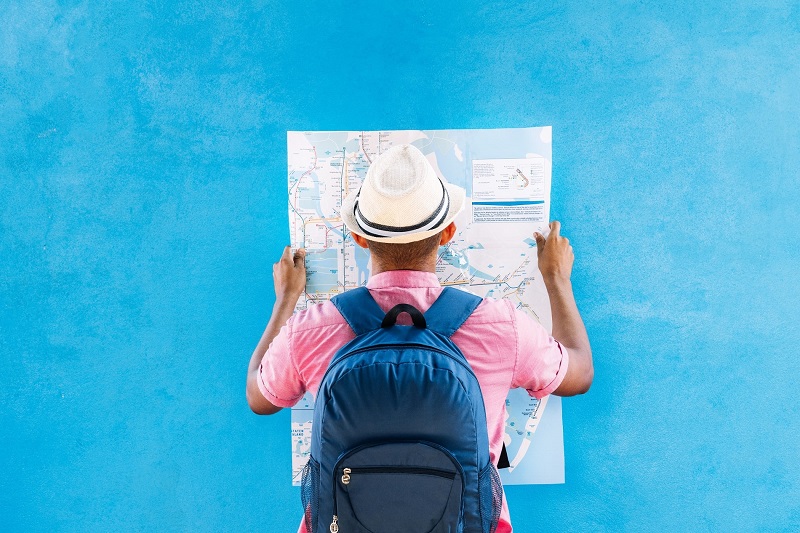Traveling is an enriching experience, but let’s face it, it can also be stressful. Now, imagine adding a disability into the mix. It might seem daunting, but I’m here to tell you it’s more than possible. With the right planning, you can enjoy a stress-free trip, disability or not!
Understanding the Challenges While Traveling with a Disability
The spectrum of challenges that come with disability-friendly travel varies greatly. However, what’s consistent is how each situation can be made less daunting with the right knowledge and strategies.
The Importance of Initial Research
Before embarking on an adventure, it’s paramount to do some initial research. Gathering information about your destination helps you prepare for any potential snags. For instance, checking the accessibility features of various hotels guarantees you find one that suits your needs. If you use a wheelchair, this means ensuring there are ramps, wide doorways, and elevators. Likewise, individuals with visual or hearing impairments need to verify if facilities are equipped with Braille or visual alarms.
Knowing public transport options in that area is also helpful. Some cities offer disability-friendly buses, trams, or taxis. However, it’s not always the case, and I can vouch for this from personal experience. For instance, it might be essential for some individuals to rent a specialized vehicle.
Common Obstacles During Travel
Embarking on a journey comes with a set of challenges unique to travelers with disabilities. Unpredictable situations can arise, like suddenly finding no wheelchair assistance at an airport or navigating a tourist site that isn’t as accessible as advertised. I’ve faced times when steps weren’t marked with high-contrast paint, or ramps were steeper than the regulation.
Pre-Travel Preparations for a Stress-Free Trip
As we venture into the planning stage, there are several critical elements to consider for a trip brimming with enjoyment and devoid of undue stress.
Selecting the Right Travel Destinations
First up, it’s crucial to pick travel destinations consciously, where disability will be a condition managed, not a barrier faced. Essential in this process is an in-depth research on different holiday spots, studying factors like the terrain, available health facilities, and most importantly, the locale’s attitude towards disability. For example, places such as Sydney, Australia, offer wheel-chair friendly attractions, like the Sydney Opera House, while Zurich, Switzerland, boasts an excellent public transportation system that caters to travelers with mobility issues. Hence, a meticulous investigation can help match travel expectations to reality and contribute to a serene vacation.
The Role of Travel Insurance for Disabled Travelers
Next, acquiring a robust travel insurance policy stands as a non-negotiable in pre-travel preparations. Its relevance doubles for disabled travelers, as it safeguards against unforeseen circumstances — financial or health-related — that may arise during the journey. For instance, a sudden ailment can necessitate hospitalization, leading to mounting medical bills. In such cases, a comprehensive travel insurance policy with extensive medical coverage can act as a financial buffer, keeping extra stressors at bay. Moreover, this policy typically covers disruptions like trip cancellations or lost luggage, adding another layer of security to your travel plans. Remember, in purchasing travel insurance, it’s always best to discern the fine print and ensure your particular needs are accommodated.
The Importance of Detailed Trip Planning
Efficient trip planning yields stress-free vacations, even more so when traveling with a disability. Every detail from destinations to dietary needs, counts. Now, let’s plunge into more targeted details.
Checklist for Travelling with a Disability
When preparing for your trip, a detailed checklist becomes your best friend. Some key elements to include are:
- Choosing a Destination: Research disability-friendly spots, similar to Sydney or Zurich, places cited previously.
- Transportation: Verify accessibility options, with attention towards public transportation systems.
- Accommodations: Opt for hotels that are disability-friendly, meaning they include ramps, spacious rooms, or specific shower features, for instance.
- Travel Insurance: A must-have, specifically a plan that covers medical emergencies or trip disruptions.
- Meal Planning: Allergies, dietary restrictions, or other food-related issues should be documented and communicated.
- Emergency Contacts: Have the numbers of preferred doctors or hospitals on hand, alongside local emergency numbers in the visiting location.
Dealing with Medical Requirements
Medical necessities demand extra attention while travelling. Let’s explore some crucial points:
- Medicine Supply: Ensure ample supply of required medications, possibly inclusive of extra dosages.
- Documentation: Keeping a note of all medical conditions, allergies, insurance details, etc., is advisable.
- Travel approvals: Some medical conditions necessitate travel approvals from doctors. Ensure to have the proper documentation.
- Accessibility of Medical Services: Research the medical facilities in your destination. For instance, availability of 24/7 pharmacies or emergency clinics.
- Medical Equipment: If you rely on medical equipment, confirm the accommodation’s ability to support, like power outlets for electric wheelchairs.
By paying attention to these specifics, travelling with a disability becomes a more relaxed and pleasing experience.
Accommodation and Accessibility
Let’s dive into lodging options and transportation for disabled travelers.
Criteria for Checking Accessibility of a Hotel
Picking the right accommodation contributes to a stress-free trip, particularly for disabled travelers. Investigate hotel availability and services, focusing on accessibility features. Check if the property has ramps, elevators, and accessible rooms. An accessible room, for instance, may have widened doors, lower beds, and roll-in showers. Also, inquire about the availability of equipment like portable shower seats or TTY devices.
Look for hotels that provide clear information about their accessibility features. For example, Marriott provides a detailed breakdown of their hotels’ accessibility features. Booking platforms like Airbnb also list accessibility features, but always confirm with the property directly. Remember, an accessible hotel can dramatically improve the quality of a trip for disabled travelers.
Understanding Transportation Accessibility
After securing lodging, consider getting from one place to another. Depending on where you’re traveling, the transportation options may vary, and not all are accessible.
In cities like London and New York, public transit systems have accessible options like low-floor buses and subway stations with elevators. However, consistency varies. Research the accessibility of public transportation, taxi services, and ride-sharing apps such as Uber or Lyft that offer accessible vehicles.
Also, if planning to rent a car, look for companies that offer adapted vehicles. For instance, Enterprise offers cars with hand controls. Always confirm the availability in advance to avoid any inconvenience.
Ultimately, understanding transportation accessibility not only plays a crucial role in moving around but also in experiencing a truly stress-free vacation.
Travel Experience Stories: Real-Life Examples
Here, I’ll share some real-life examples that can be enlightening for you. These stories about traveling with a disability provide insights into both successful trips and distressing experiences, offering learning opportunities.
Success Story of Traveling with a Disability
Once, I met Susan, a wheelchair user and avid traveler. Despite her disability, Susan has traveled to over 15 countries, including Egypt, Spain, and Japan. Her story is filled with exciting adventures and heartwarming experiences. For instance, in Spain, she visited the famous Alhambra palace with the help of the on-site wheelchair services, proving that historical sites can be made more accessible. In her Japan trip, she was touched by the country’s meticulous concern for accessibility, noticeable in their infrastructure and transportation. Susan underscores that comprehensive planning, especially regarding accommodation and transportation, makes her trips manageable. Moreover, local guides familiar with accessibility issues make her journeys even smoother. Her success story tells me that traveling with disability, though challenging, can be a rewarding experience.
Lessons Learned from Unpleasant Travel Experiences
However, traveling with a disability is not always seamlessly pleasurable. For example, once in Venice, an individual with mobility impairment, named Mark, had quite an unpleasant experience. Despite Venice’s allure, its multitude of bridges and historical infrastructure poses a real challenge for disabled visitors. Mark had a difficult time navigating through the city and constantly needed assistance. What worsened the situation was a lack of accessible public transportation. Mark’s story serves as a reminder that even popular tourist spots can prove daunting for individuals with disabilities if not researched well in advance concerning accessibility. Moreover, his experience showcases the necessity of developing more inclusive tourism infrastructure worldwide. His experience, though unpleasant, provides valuable learning for all of us, especially those traveling with disabilities.
Tips and Suggested Solutions for Common Problems
To travel successfully, it’s essential to address possible challenges and find effective solutions. This section dives into helpful travel gadgets for disabled travelers and provides tips for smoother transport experiences, covering aircraft and public transport.
Useful Travel Gadgets for Disabled Travelers
Gadgets make travel simpler, especially for disabled travelers. Handheld QR barcode reader is a beneficial tool, assisting visually impaired individuals by reading out product details. For those with limited mobility, a portable folding ramp offers ease in navigating stairs or pavements. Another smart tool is the mobile phone software: “Be My Eyes.” This app allows visually impaired people to request the help of a sighted volunteer via a live video chat, helping them navigate unfamiliar territory.
Tips for Aircraft and Public Transport Travel
Air travel comes with unique challenges for disabled passengers. Always plan in advance and inform the airline about your specific needs. For example, a person with mobility impairment might require an aisle chair for a smoother boarding process while a visually impaired passenger can request pre-boarding and assistant services.
When it comes to public transport, the key lies in researching beforehand. Buses and trains equipped with accessibility features, often referred to as “Handicap Accessible,” offer mechanisms like hydraulic lifts and ramps. Don’t forget to ask about an accessible route map, too: this tool instantly provides the information about stations that are wheelchair-accessible. Remember, communication is key: reach out and inquire about available services to ensure a smooth journey.
Conclusion
So there you have it. Traveling with a disability doesn’t have to be stressful if you plan ahead. It’s all about finding disability-friendly destinations, securing comprehensive travel insurance, and addressing your medical needs. Just like Susan and Mark showed us, the journey can be both rewarding and challenging.
Remember, the right accommodations and transport options can make a world of difference. Don’t forget to check out those handy travel gadgets – they’re real game-changers.
Navigating through airports and public transport might seem daunting, but with a bit of foresight and communication, it’s entirely manageable. After all, the world is yours to explore, disability or not. So pack your bags, do your research, and get ready for an adventure. Because, my friend, you’ve got this!










0 Comments